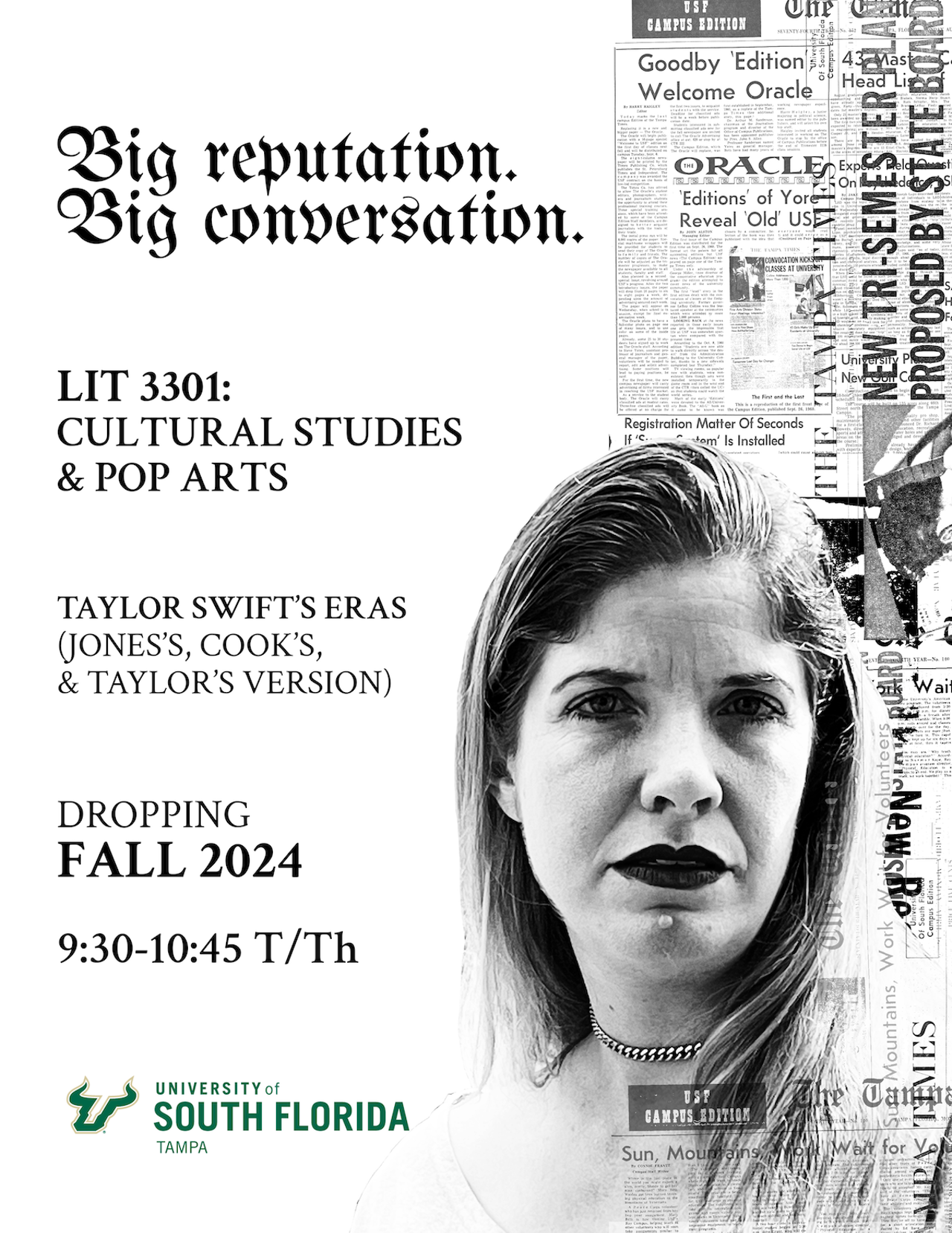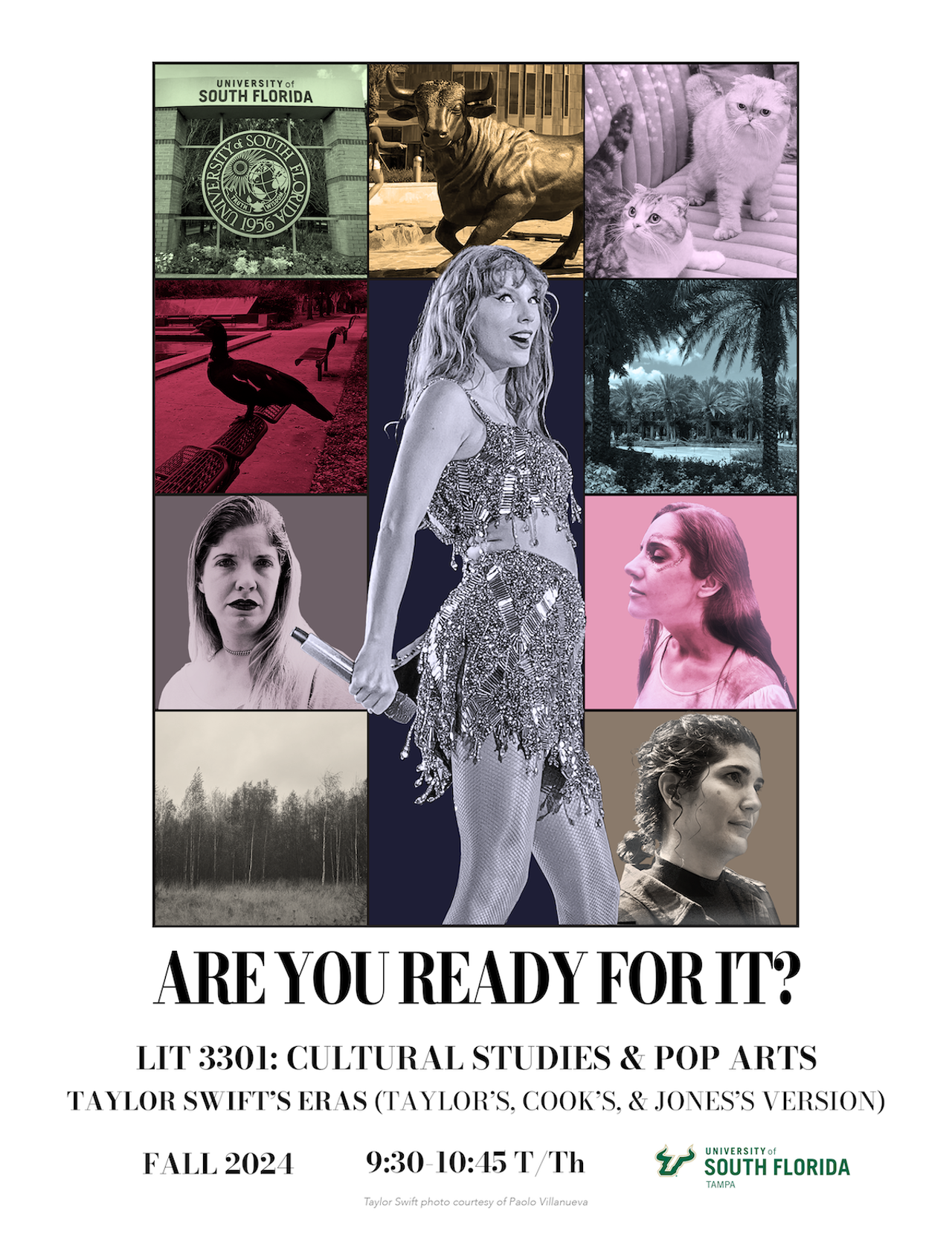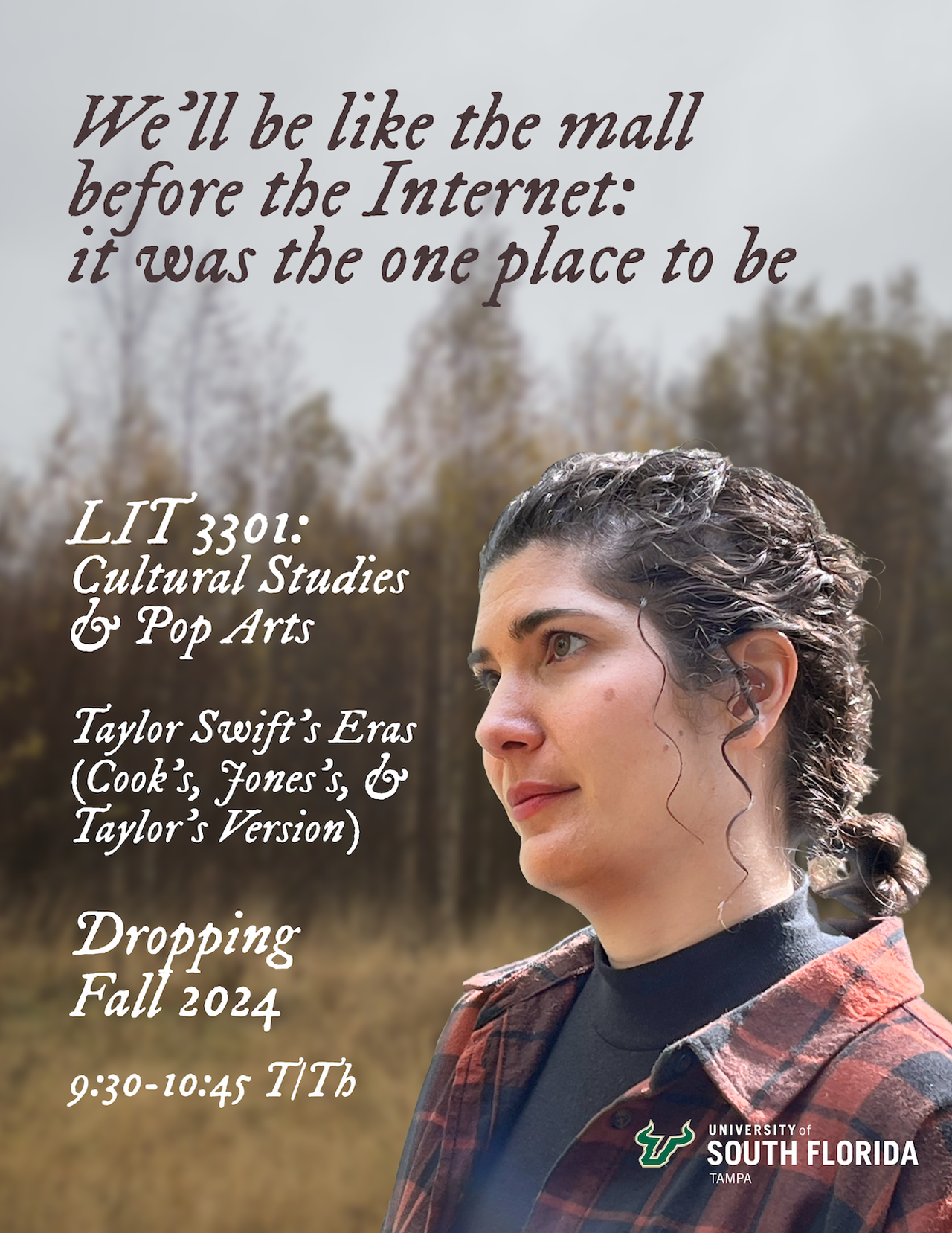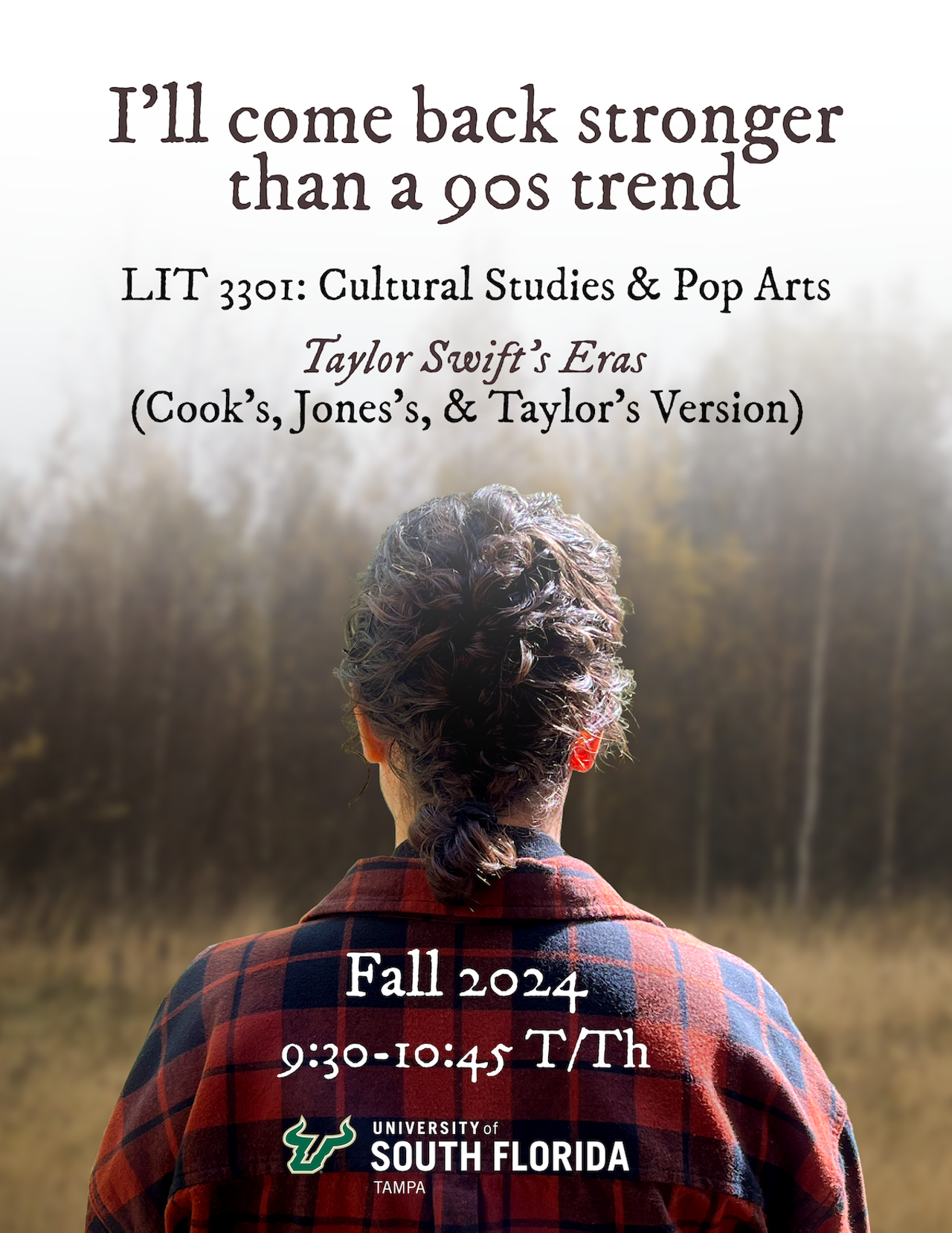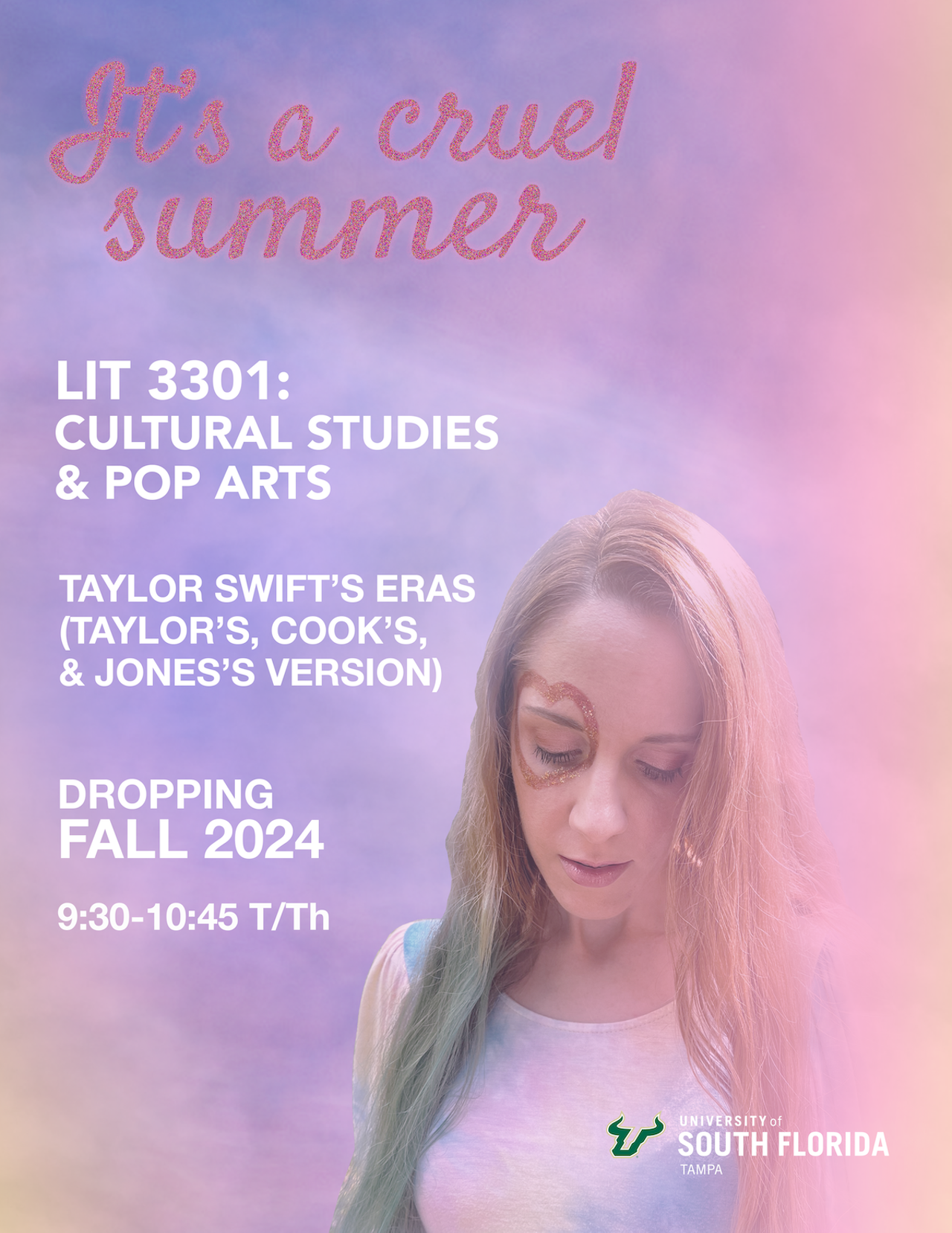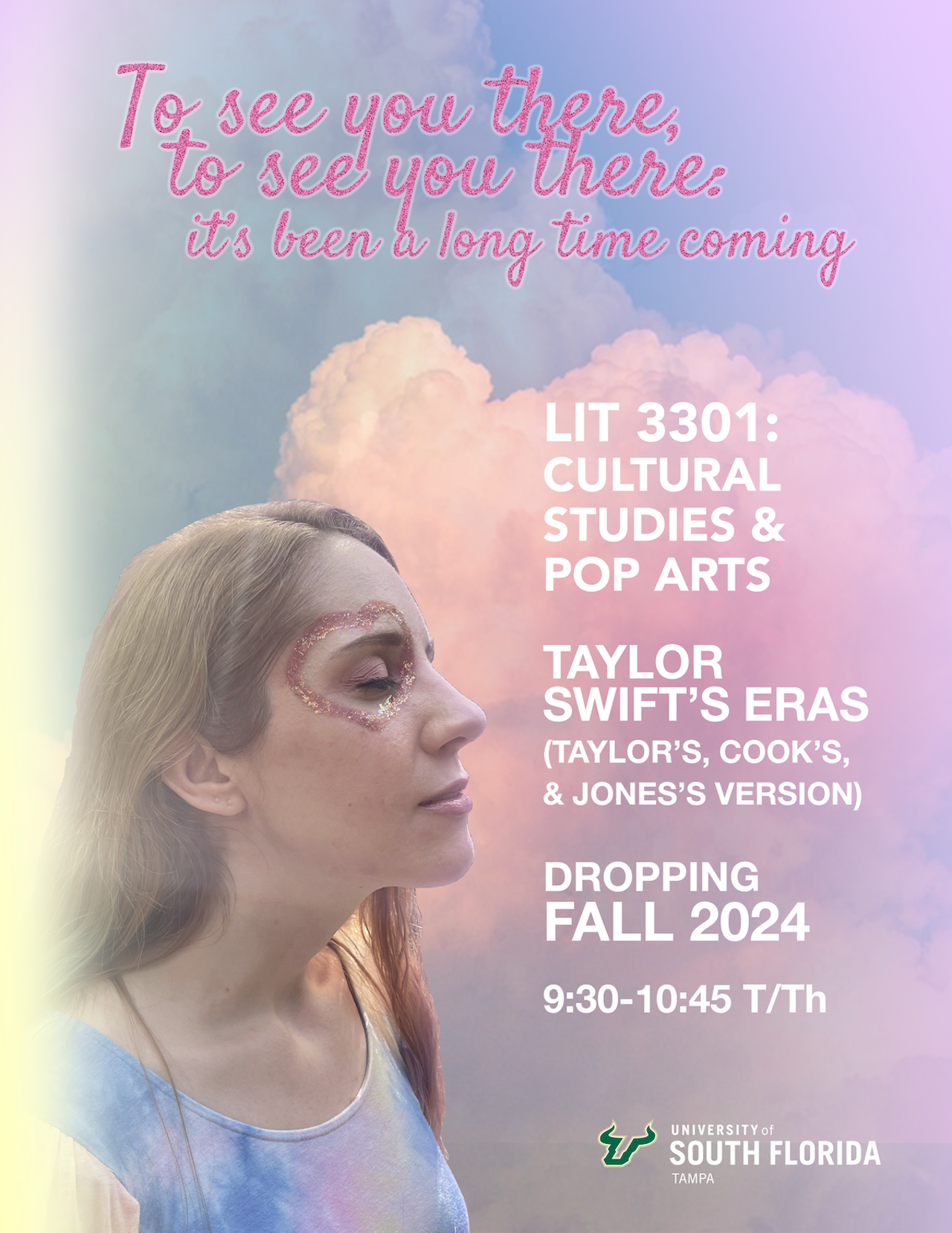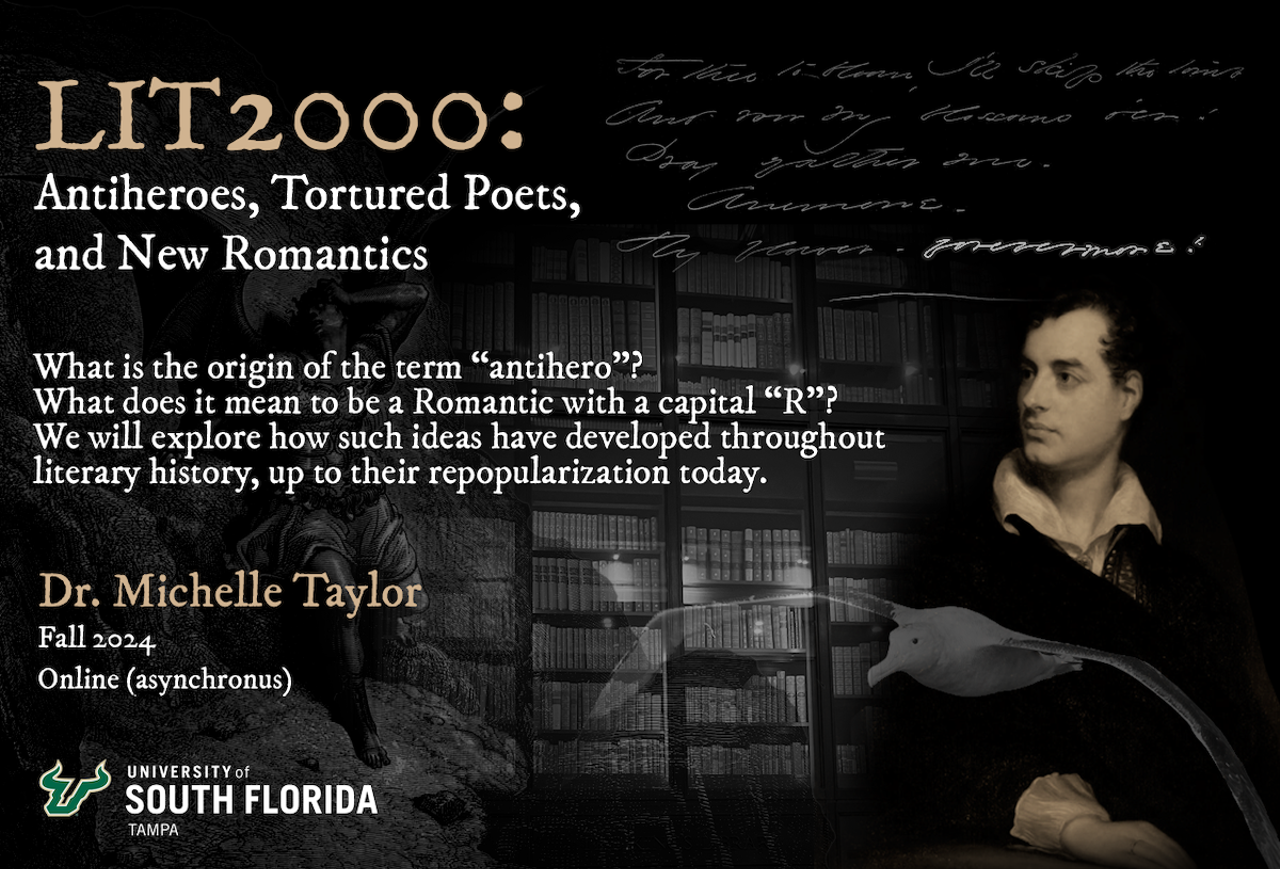The English department at the school’s Tampa campus is now offering a course that takes a literary look at lyrics penned by none other than Taylor Swift.
The course is co-taught by Emily Jones, an Associate Professor at USF who specializes in the renaissance period of the 16th and 17th centuries. Her co-teachers for the course—Associate Professor of Instruction & M.A. Advisor Jessica Cook and Assistant Professor of Instruction Michelle Taylor—specialize in 18th century romantics and 19th century victorian, respectively.
Influences from their backgrounds will play some role in the coursework for the three-credit course “Lit 3301: Cultural Studies And The Popular Arts,” but the subtitle of the offering is “Taylor Swift's Eras,” with Swift’s work at the core of everything.
The course description reads like this:
Calling all mad women, heartbreak princes, and tortured poets! In this course, we’ll do a close and critical study of the current cultural phenomenon that is Taylor Swift.“What we really want to do is take seriously, Swift's lyrics as poetry and close read them as individual songs like in conversation with each other,” Jones told Creative Loafing Tampa Bay.
Often praised as one of the greatest songwriters, Swift takes her artistic heritage
not just from other musicians but from major literary figures: William Shakespeare, Charlotte Bronte, Emily Dickinson, and more. Together, we’ll explore the cultural history behind Swift’s career, and we’ll interpret her lyrics as poetry, using a range of approaches.
We’ll also consider Swift as a performer and self-marketer: how does she fashion herself as a writer, musician, and cultural icon through both art and public life?
Thirty-five students can enroll in each of the three sections, which will meet together in a large lecture hall on Tuesdays, then separately on Thursdays for smaller class discussions.
And yes, the professors are all featured in themed promo posters for the classes (see them at the bottom of this post).
While the course starts this fall, the syllabus is in its draft era because Swift is releasing her 11th studio album The Tortured Poets Department tonight.
“So that might blow our minds to the extent that we want to rethink what we've done a little bit,” Taylor—who’ll listen to the album the second she gets off a late flight in Iowa City—added.
The idea for the class was born over lunch as the friends leaned into an academic conversation about Swift’s 2012 album Red, which marked the songwriter’s shift into pop. The debate centered loosely around a song’s placement on the album and its relationship to other songs; textual evidence from the lyrics was presented to back interpretations, and then Cook jokingly suggested that the friends teach a course on it.
“Then we thought about it for a second—and we could teach a course on this, we could make this happen,” Jones added.
Cultural Studies And The Popular Arts was already an offering, with topics such as Harry Potter and Jane Austen being centerpieces, but the friends knew that centering it around Swift—who broke records during her three-night stand in Tampa last year—would be even more popular with students.
“It could amp up our efforts to recruit students and sort of show them the continued relevance of English and culture and textual interpretation,” Jones said.
All three of the instructors love the music, but Taylor didn't call herself a Swiftie until the idea of the course grew legs. That's when a department head titled a logistics virtual meeting about the course “Swifties.”
“I was like, ‘OK, whether I was going to label myself as that or not—which I clearly am now that I think about it—that's kind of how that became institutionalized that we are the Swifties,” Taylor added.
Cook relates to being a superfan, but admits that finding the easter eggs Swift leaves for fans can feel a little exhausting. “So I wonder: ‘Does that mean that I have to forfeit my Swiftie title?’” she wondered.
While Jones—who is happy to embrace the title of “Swiftie”—doesn’t have the same parasocial relationship with Swift that some of the students of LIT 3301 probably do, the course does give the instructors the perfect opportunity to introduce concepts of literary theory that students might not yet know about.
And could the course uncover new easter eggs, and become a research powerhouse for Taylor Swift fans?
“If anyone can do it, it's our students,” Cook said. “I feel like I know Swift really well, and then I start talking to them and I'm like, ‘Oh, you know Swift on a different level.”
Other colleges like Harvard and the University of Florida have offered classes with Swift in the course title, but USF’s might be the first in the country that solely uses her lyrics as class material.
The breadth of the Swift catalog will be covered, but expect instructors to be particularly enthusiastic about the folklore era. The album, Taylor said, has at least four allusions to “Jane Eyre,” which has a Byronic hero and songs about the Romantic and lake poets. Even vault tracks from the re-release of 1989 advance the prevalence of the New Romantics in Swift’s catalog.
“I have a whole theory about the song ‘Slut’ and William Blake,” Taylor added, pointing out that Swift is also not the first person to rewrite Shakespeare with a more optimistic ending.
“The 18th century was notorious for rewriting Shakespearean plays like tragedies like ‘King Lear’ and giving them these kinds of more sort of happy endings for the characters,” Cook said. “So I think it's interesting to point out—even if she didn't realize she was writing in that tradition—that she is writing in a tradition of people who have done that specifically with Shakespeare.”
At the end of it all, Taylor—who will work Swift into a separate LIT 2000 course subtitled “Anti Heroes, Tortured Poets, and New Romantics”—wants her students to realize how pertinent their fascinations with Swift are.
Yes, the pop star is more or less ubiquitous in our culture, with Chads and Brads complaining about seeing Swift on an NFL broadcast, but Taylor hopes students will realize that having their finger on the pulse of popular culture means they already have the skills to understand the humanities’ place in the real world.
“This course helps validate and legitimize the cultural practices that many of our students may feel are, silly or you know, ‘cringe’ as the youngs say. What they're doing has cultural and literary merit,” Jones said. “And then on the other side, it also gives currency to a discipline that's frankly very old.”
Cook points out that, like Swift, the plays of Shakespeare, Byron’s poems, and even “Jane Eyre” weren’t experienced as history in their present moment. They were experienced at the time as kind of living, breathing, and very contemporary.
“Something doesn't have to be old in order for it to be taught in a literature classroom, and the things that students are doing with Swift right now are also the same things people were doing in Shakespeare's time or environs, or in Charlotte Brontë’s,” Cook said. “So I think we're excited about giving students a chance to do this kind of cultural and critical analysis with something that's contemporary to them.”

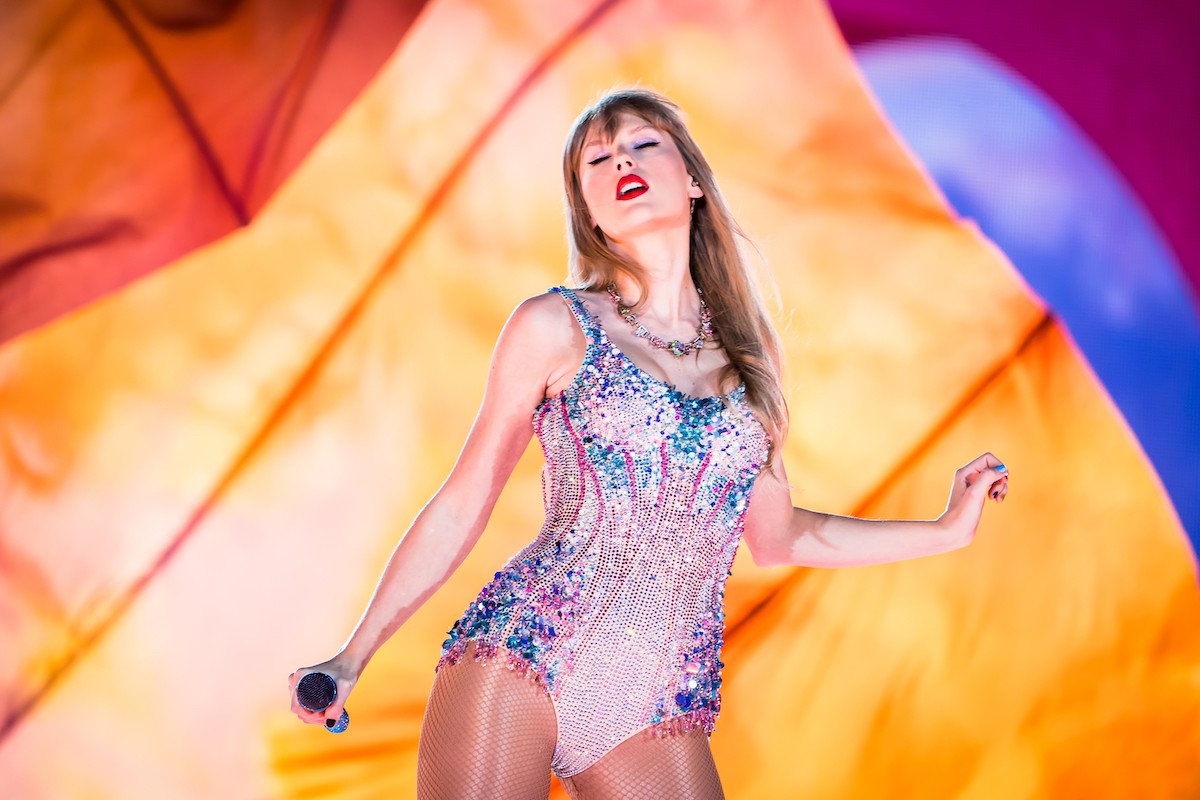
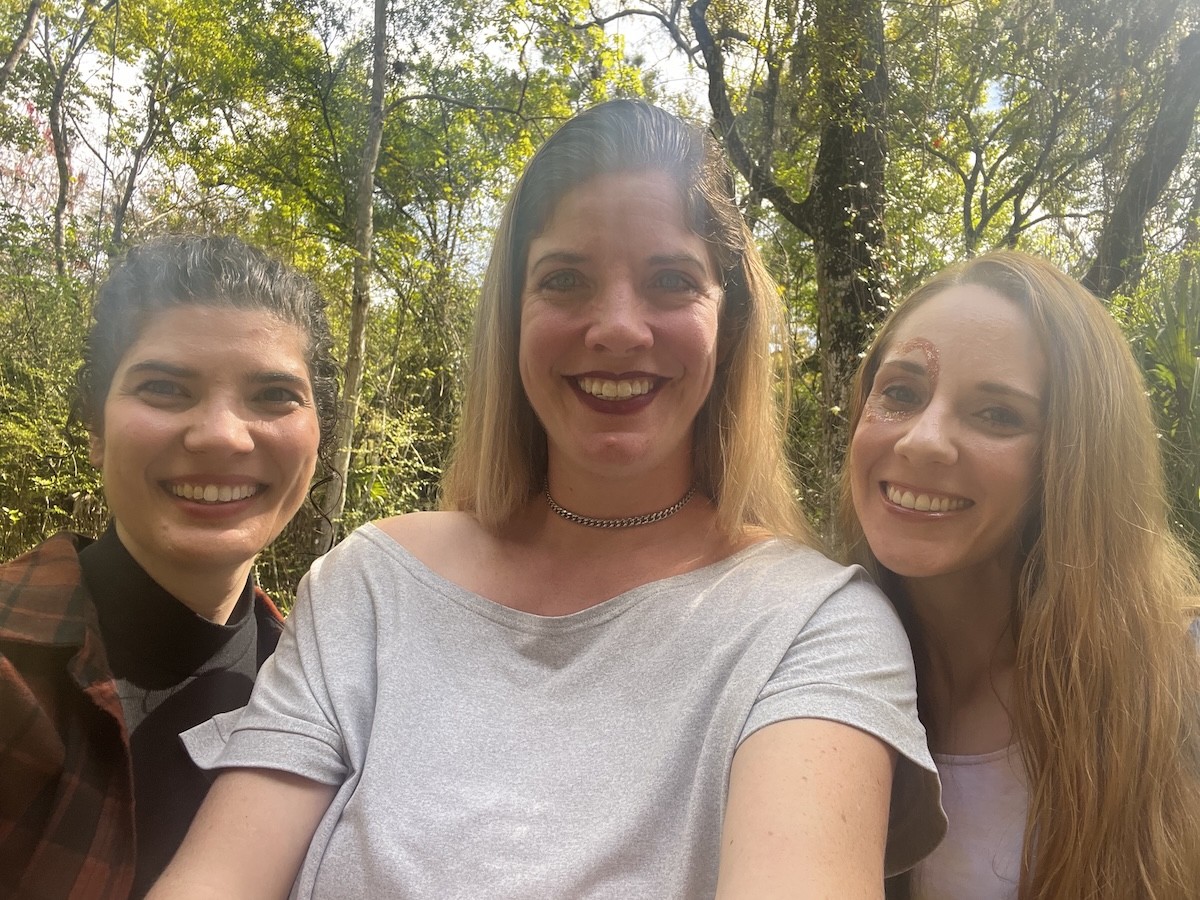
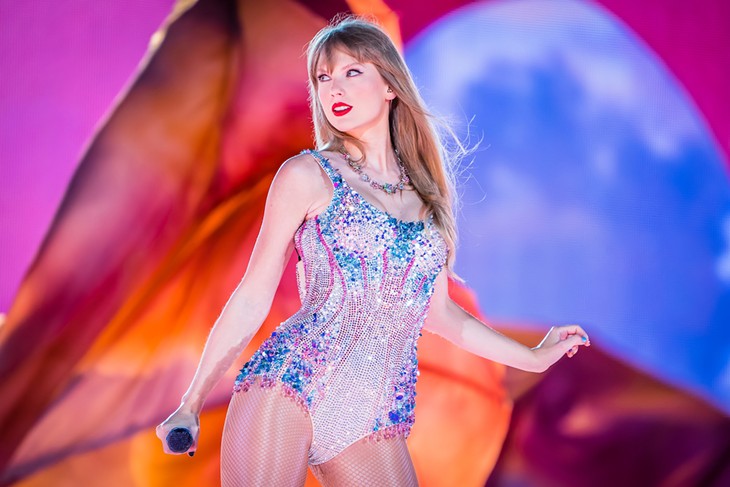
![Review: In first outdoor ‘Eras’ show, Taylor Swift took Tampa to a pristine, almost perfect, fantasyland [PHOTOS]](https://media2.cltampa.com/cltampa/imager/review-in-first-outdoor-eras-show-taylor-swift-took-tampa-to-a-pristine-almost-perfect-fantasyland-photos/u/slideshowthumb/15462986/prd00082.jpg?cb=1681460654)
![Review: In first outdoor ‘Eras’ show, Taylor Swift took Tampa to a pristine, almost perfect, fantasyland [PHOTOS]](https://media2.cltampa.com/cltampa/imager/review-in-first-outdoor-eras-show-taylor-swift-took-tampa-to-a-pristine-almost-perfect-fantasyland-photos/u/slideshowthumb/15462987/prd09370.jpg?cb=1681460654)
![Review: In first outdoor ‘Eras’ show, Taylor Swift took Tampa to a pristine, almost perfect, fantasyland [PHOTOS]](https://media1.cltampa.com/cltampa/imager/review-in-first-outdoor-eras-show-taylor-swift-took-tampa-to-a-pristine-almost-perfect-fantasyland-photos/u/slideshowthumb/15462988/prd09385.jpg?cb=1681460654)
![Review: In first outdoor ‘Eras’ show, Taylor Swift took Tampa to a pristine, almost perfect, fantasyland [PHOTOS]](https://media1.cltampa.com/cltampa/imager/review-in-first-outdoor-eras-show-taylor-swift-took-tampa-to-a-pristine-almost-perfect-fantasyland-photos/u/slideshowthumb/15462989/prd09398.jpg?cb=1681460654)
![Review: In first outdoor ‘Eras’ show, Taylor Swift took Tampa to a pristine, almost perfect, fantasyland [PHOTOS]](https://media2.cltampa.com/cltampa/imager/review-in-first-outdoor-eras-show-taylor-swift-took-tampa-to-a-pristine-almost-perfect-fantasyland-photos/u/slideshowthumb/15462990/prd09399.jpg?cb=1681460654)
![Review: In first outdoor ‘Eras’ show, Taylor Swift took Tampa to a pristine, almost perfect, fantasyland [PHOTOS]](https://media2.cltampa.com/cltampa/imager/review-in-first-outdoor-eras-show-taylor-swift-took-tampa-to-a-pristine-almost-perfect-fantasyland-photos/u/slideshowthumb/15462991/prd09405.jpg?cb=1681460654)
